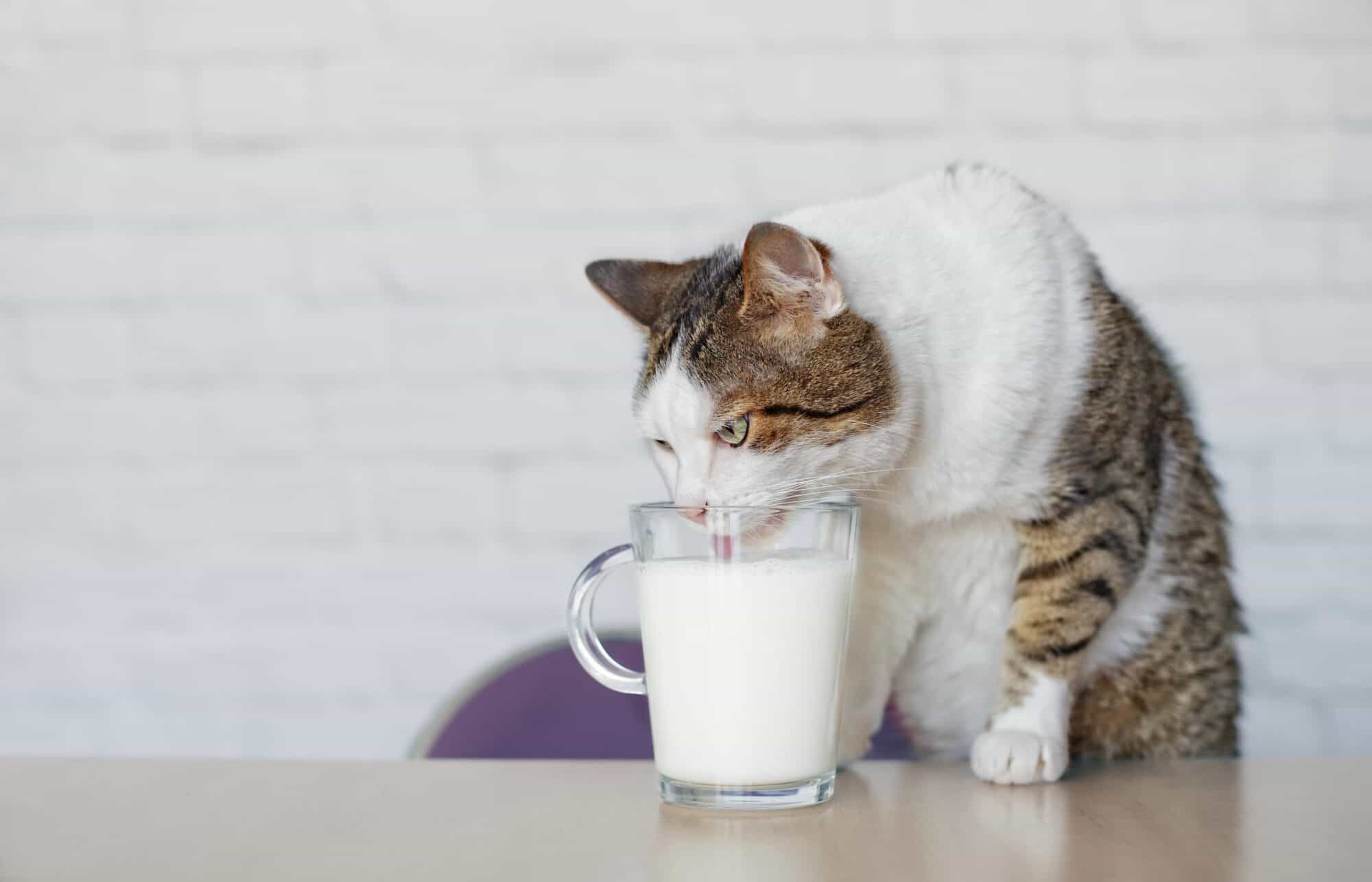Can Cats Drink Cow’s Milk?

It used to be commonplace to offer a stray cat a nice bowl of milk, but today we know so much more now about feline nutritional needs and their digestion system. Can cats drink cow’s milk? The team at Crossroads Animal Hospital is here to help you determine if this beverage is actually good for our feline friends.
But Kittens Drink Milk
Kittens are dependent on their mothers for at least 8 weeks, with some nursing for up to 10-12 weeks. When they start eating solid foods, kittens stop making lactase, the enzyme necessary for digesting lactose. Because of this, they start drinking cow’s milk long after they are weaned, they are likely to experience gastrointestinal upset.
Lactose Intolerant Cats
Vomiting, diarrhea, abdominal pain, and gas are the by-products of a system ill-equipped to handle lactose. This happens because lactose, or milk sugar, passes through the intestines without adequate digestion. The water from the milk may pass as diarrhea, while bacteria in the colon tries to handle the sugar content, resulting in bloating, discomfort, and flatulence.
Preventing Milk Problems
If your cat happens to drink milk left out, any possible problems may self-correct after a day or so. However, because diarrhea can lead to dehydration, encourage them to drink more water and rest afterwards.
We know how fun it can be to share human foods with our pets. It is best to exercise caution when offering milk-substitutes, like soy, help, or oat milk, to our feline friends especially if they are high in fat, sugar, salt, preservatives, and thickening agents.
What’s Up With Cat Milk Products?
There are cat milk products commercially available that can be an excellent substitute for female cat milk. Typically only used for orphaned kittens before they are able to eat solid food, these products can also provide supplemental nutrition to older cats with certain nutritional needs.
If your cat shows a strong curiosity for and seems to seek out milk, try to interest them in wet foods, a new water fountain, or opt for a small amount (like a teaspoon) of lactose-free milk.
Feline gastrointestinal health can be a delicate balance to maintain and support. Keeping their food, portion sizes, and treats the same every day is critical to their well-being. If you have any questions about your cat’s nutritional needs, behavior, and overall wellness, please call us at (540) 832-1751. Our team is always happy to help your cat at Crossroads Animal Hospital.
